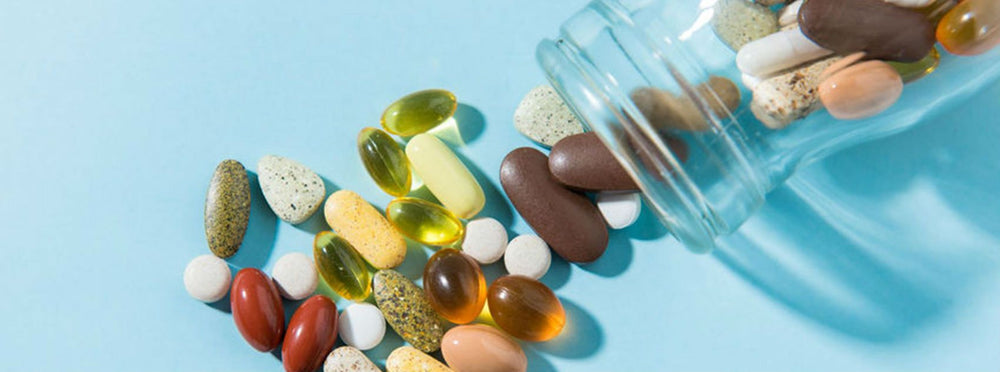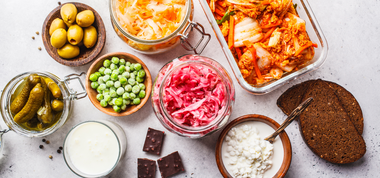Another huge study confirms that vitamins don’t help

If you’re like most Americans, you probably pop a vitamin or two a day.
But a new review of 277 clinical trials shows that you’d be better off spending your money on healthy foods.
I’ve always advised my patients to focus on food over pills, and now there’s even more data to encourage better eating habits. Researchers from Johns Hopkins found that supplements and most specialized diets do not offer any protection from heart disease, and that they do not prolong life.
That’s $31 billion that people are spending on supplements which could instead be spent on nutritious foods - foods that have been consistently linked to fantastic health benefits, including heart health.
As senior study author Dr. Erin Michos notes, "The panacea or magic bullet that people keep searching for in dietary supplements isn't there." Instead, she says, "people should focus on getting their nutrients from a heart-healthy diet, because the data increasingly show that the majority of healthy adults don't need to take supplements."
The only possible exceptions the researchers found? A low-salt diet is the only specialized diet that appears to offer any benefits -- and that’s especially true for people with high blood pressure. And there is a small possibility that omega-3 fatty acid supplements help reduce heart attack risk. In a previous blog I noted that folate supplementation may be beneficial, but that data needed to be taken in context of the population studied (mainland China) where routine food fortification with folate is absent (unlike in the U.S.).
Even vitamin D alone, which is the only supplement I take, wasn’t linked to any health benefits. (Because my vitamin D has measured as below normal, I will likely continue to take it - admittedly inconsistently - given that it’s very difficult to obtain from diet. And I’m at risk for continued low levels of as the so-called “sunshine vitamin,” especially during Minnesota winters and when I’m inside a clinic all day. But I’m noting that the study found that vitamin D should not be combined with calcium.)
Not quite convinced you want to ditch the multis? Consider more examples of the overwhelming power of food as medicine:
- Adding 10 grams of whole food fiber per day – the amount you find in 2 servings of Step One Foods – is linked with a 14% decrease in the risk of experiencing a heart attack and a 27% reduction in the risk of dying from any cause.
- Adding just one piece of fruit per day reduces your risk of stroke by 6%. (You can get the equivalent of the antioxidants of three fruit servings in just two servings of Step One Foods.)
- If everyone in the U.S. consumed Step One Foods, the risk of heart attack and stroke in our country could be reduced by as much as 18%.

Tested & Proven Results.
- Cardiologist formulated
- Supported by over 500 publications
- Clinically-proven, in a double-blind randomized trial with Mayo Clinic and The University of Manitoba
80% of participants lowered their cholesterol in just 30 days. With just two servings per day, Step One Foods offers a proven-effective way to naturally lower LDL (bad) cholesterol.
Get heart health tips and articles like this, delivered right to your email.
New articles every week.
You may also like...

You don’t need to avoid foods with cholesterol…except for these




